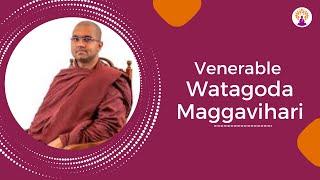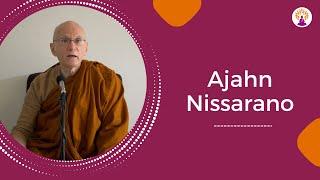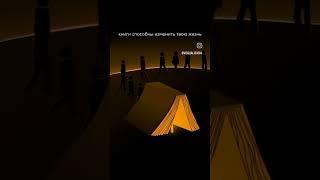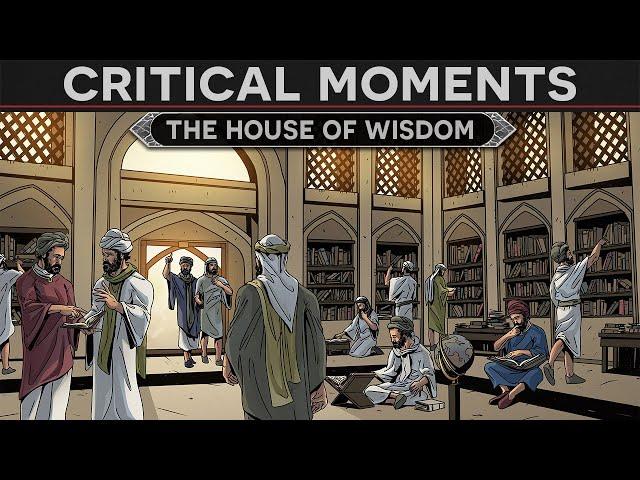
The Islamic Golden Age and The House of Wisdom DOCUMENTARY
Комментарии:

Internet = house of wisdom
Ответить
Islam had little to do with science. Individual arabs and muslims inside the khalifates contributed but the texts in itself gives nothing of value. If you don't believe in God the religion was a copy paste of existing religious texts and then the hadith came some centuries later. That's number one. Whole sections are copied. When it comes to science, "muslim" armies conquered India and Baghdad who both contained centers of science that were copied. Remember, the house of wisdom existed before they came. The armies were amazed by the cultures they encountered and copied knowledge from Indians, Greeks,persians and that led to the golden age for muslims. The invaders built on that science and created marvels themselves. Thats true.
Why? Well, they had all the money in the world, a lot of freetime and ladies in their harems so why not enjoy culture,science and art and give their minds some pleasure aswell.
The armies from Saudi didn't come with science so thats why they are not respected the same way other cultures are who brought with them science to places they conquered. I think the fact that you put islam in the title explains it all.
We don't say hindu science or christian science or science of the greek or persian Gods! You attribute science to a text that has nothing to do with science. When we speak about Voltaire or Newton we don't equate their achievements with Christianity, no, we say they achieved this and that because of other factors. But every time a person born in a muslim society does something you for some weird reason always have to give credit to Islam. Its strange and simply not correct. Some muslims were great men and thats it.

Alright. The Abbasids were emperors, they ruled an empire. Such a polity doesn’t exactly exude benevolence, fairness and kindness. So one could ask “Yes, it was a Golden Age but for whom?”
Take al-Zahrawi. He was patronized by the Umayyad Caliphate of Spain, so he worked in a hospital and had a monthly salary provided by the Caliph. Where did the Caliph get the money to finance the hospital and Zahrawi’s salary for decades?
The slave trade
The Andalusians emptied central Spain with intense raiding as they would capture large numbers of Spaniards and sell them into slavery in North Africa.
So all of the medical advancements produced by Zahrawi were made possible thanks to the imperialism of Andalus which was so cruel that it even rejected the concept of dhimmis as that concept emerged in the Rashidun Caliphate to argue that a Muslim ruler had an obligation to protect his non-Muslim subjects so the Andalusians found a loophole. They didn’t really claim central Spain therefore the Christians there couldn’t be subjects(citizens) therefore it was fair game for slave-raiding.
So while this period was a Golden Age, it’s in reference to science not humanity.
For obvious reasons, when a Spanish family was being chained and forced to march to a port to be shipped to a slave market in Morocco, they weren’t saying “It’s fine. I heard from one of the raiders that the profits of this expedition will fund research into anesthesia. Our sacrifice will help humanity unlock one of the keys to long surgeries which will help cure countless ailments!”
These were empires, not benevolent forces of good.

Islam's terrorist past can never be beautified no matter how much you try
Ответить
Bait Al Hikmah ❤
Ответить
What I wanna know is why the Mongols destroyed the books. They were savage for sure, but also savvy enough to know that books were loot. It's as confusing as it is saddening.
Ответить
As a Christian, I am truly grateful to our Muslim brothers and sisters for contributing our technological progress during the middle ages.
Ответить
Islamic golden age is a myth and the wrong term. It was all Persian and Iranian based on what existed before Islam in Iran.
Even the name Baghdad is Persian. Not only that, it is a Zoroastrian name. The religion that Abbassids did their best to annihilate.

Greatly explained
Ответить
Fake is there is no Islamic golden age ....it's fabricated lies made by Arabs....they created stupid stories to appease the foreigners
Ответить
⥊ 900: 1001
0: Good (if not good, then not zero)
001: Uniqueness
02: Individuality
03: Idea
04: Body
05: Emphaty
06: Ingenuity
07: Assertiveness
08: Integrity
09: Ambition
1: Ethics
2: Problem-Solution
3: Consent/Fix
4: Love/Free
5: Demonstration
6: Why/Who/When/How/Where/What
7: Information/Flow
8: Stability
9: Sanity/Seriousness
10: Network (Good Network, because zero)
11: Justice
12: Time
13: Death
14: Abolitionism
15: To Persevere
16: Control
17: Teller
20: Judgement
21: Solving Problems with Ethics
22: Resistance
23: Resilience
30: Liberty
31: Consent
32: Discernment
33: Principle
40: Good Will
44: Free Love
50: Good Force
52: Pragmatism
55: War
57: Counter-Terrorism
60: Good Reason
61: Assertiveness
70: Knowledge
77: Rhetoric
80: Sustainability
85: Autonomy
86: Severity
87: Sobriety
88: Personal Sovereignty
89: Self-Control
90: Wisdom
95: Only One Global Currency
96: Blockchain
97: Anarchy
98: Veganism
99: Revolution
100: Liberation
300: To Liberate
400: Earthlings
444: Direct Digital Democracy
555: Diplomacy
800: Providence
1000: Militancy
1001: Nova Era
. This is a numeric Matrix for communications purposes.
. This can be used to convey meaning.
Ex.: 6022: Good Reason to Resist.
. Mathematical operators can be used to calculate meaning.
Ex.: To liberate with a good force: 340. 300 + 40 = 340.
. Logical operators to create statements.
. Colors can also be used as information.
- You can help building it.

Axeendra the great and Islamic golden age were over 1000 years apart just to help in history fact
Ответить
Reviewing this to prepare myself for some Assassin's Creed Mirage lore
Ответить
If only leaders like al-ma'mun are the norm, instead of the exception
Ответить
"There is no war the Round City of... wait, where's that throat singing coming from?"
Ответить
Due credit, such scientific achievements. Very insightful and educational. If it wasn't for Arabic scientific achievements European would still be in the dark ages. Thank you for the knowledge.
Ответить
During the Sasanian Dynasty, which ruled over the Persian Empire from the 3rd to the 7th century CE, there were notable Zoroastrian scholars and scientists who made significant contributions to various fields. While specific information about individual Zoroastrian scientists from that period may be limited, here are some areas of knowledge in which Zoroastrians made advancements:
Astronomy: Zoroastrians, influenced by their religious beliefs, had a strong interest in astronomy. They developed astronomical observations and calculations, including the compilation of star charts and the study of celestial phenomena. These observations and calculations aided in the development of the Persian calendar, which had a solar foundation.
Medicine: Zoroastrians in the Sasanian period contributed to the field of medicine. Prominent physicians such as Burzoe and Bakhtishu played key roles in advancing medical knowledge and practices. They translated and compiled Greek medical texts into Persian, thereby preserving and disseminating medical knowledge throughout the empire.
Alchemy: Zoroastrian scholars in the Sasanian period were involved in the study and practice of alchemy. Alchemy encompassed various disciplines, including the search for the philosopher's stone, the transmutation of metals, and the pursuit of elixirs of immortality. These studies laid the foundation for later developments in chemistry.
Philosophy and Theology: Zoroastrian scholars engaged in philosophical and theological discussions, exploring concepts related to ethics, cosmology, and metaphysics. They sought to understand the nature of existence, the relationship between good and evil, and the purpose of human life. These philosophical and theological inquiries influenced later Islamic and Persian philosophical traditions.
Literature and Poetry: Zoroastrian scholars contributed to the literary and poetic traditions of the Sasanian period. They produced works in the Persian language, including epics, religious texts, and lyrical poetry. These literary contributions played a crucial role in the development of Persian literature and had a lasting impact on subsequent Persian literary traditions.
It is important to note that during the Sasanian period, Zoroastrianism was the state religion of the Persian Empire, and many scholars and intellectuals were adherents of this faith. While specific names and details may not be extensively documented and are lost to history after the brutal Islamic conquest of Persia from (633-651 CE) with major Persian libraries and Universities like the "School of learning at Ctesiphon" it's vast libraries and the famous "Academy of Gondishapur" barely survived the destruction by the Arabs and many Middle Persian texts were burned those who survived were later translated into Arabic but the original copy didn't survive,
Zoroastrians undoubtedly played a significant role in the intellectual and scientific advancements of the era.

I was born in Baghdad Iraq and it's crazy to think that my ancestors did all that
Ответить
They owe everything to the Byzantines. All of the Greek manuscripts were taken from the Byzantines.
Ответить
Thanks to the savage mongols for destroying the house of wisdom
Ответить
Still In This Modern World There Is No Golden Baghdad!!!
Those People Were Well Ahead Of Their Time

* if it was not for the Al Andalus and Qurtuba Caliphates. And the Ummaya and Abbasi Caliphates, then Aristoteles, Socrates, Platones, Pitagoras, Thoukidides, Archimedes, ... would have been lost, if the Caliphs did not spend millions on translating all world scientific books*
Ответить
University in the old age called Madrasah. First university in Europe was in Cordova Muslim Spain.
Ответить
Madrasas didnt house occult thought? There's so much you got wrong in this video man oh man
Ответить
Assassin's Creed: Mirage brought me here!
Ответить
when you said muhamad. you forgot to say peace be upon him
Ответить
Imagine what was lost under the Mongols
Ответить
This Seams the people of knowledge dream
Ответить
In conclusion, I can unambiguously summarize the fact that the so called Islamic Golden Age was not any product of Islamic scriptural knowledge, nor it was due to any degree of devoutness of religion Islam, rather it was due to short-lived opportunity of freethinking and rationalism induced by the famous Mu’tazillites and facilitated by the liberal minded Abbasid Kingdom.
What was the ideology of Mu’tazila which actually opened the window for rational thinkers? The defining philosophy of Mu’tazila was freewill, rationalism and scientific thoughtwhich was rooted in the Hellenic-age Greek philosophy. Mu’tazila ideology was greatly promoted during Abbasid Caliphate (8-13th century) but after that Islamic re-incarnation by Ahadiths collection by Muslim al –hajjaj, al-Bukhari, Abu daud, al-Timidi and rise of islamic zealots by the leadership of Imam Ghazali put the final nail to the coffin of defeated Mu’tazillites—leading to the end of enlightenment during 13th century and subsequently rise of Islamic devoutness (darkness of close minds and superstitions) in the Islamic world, which ended the so called Islamic Golden Age for good.
The Quran emphatically forbade pursuance knowledge and learning that falls outside the scope of Quran and Sunnah for fear of going astray by emulating path of error and heresy. Quran directly contradicted the very principle of Mu’tazilies. Hence, Islamic theological knowledge had very little to contribute to the attainment of the Golden Age.
When Muslims talk about Islamic Golden Age, they mostly think of Islamic rule by the Prophet Muhammad and his four Rightly Guided Caliphs (truly followed the footsteps of Mohammed), Abu Bakr, Omar, Uthman and Ali who ruled after Mohammed. Their ruling time only lasted about 30 years. History recorded in the Islamic books only tell us that these Islamic rulers were busy fighting and killing their rivals, apostates, and non-muslims, occupying lands and property (war booties), assassinating political rivals, etc. etc. Polygamy (filling their harem with multiple wives) and child-marriage, mu’ta marriage (temporary marriage). Alas, nobody can find even a trace of scientific advances during this 30 year period of Islamic rule. It was the same scenario with the European “Dark Age” of fundamentalist Christian rule by the Roman Catholic Papal Empire.
The real contribution of theological force of Islam was the formulation of “Islamic Sharia laws” derived directly from the Quran and Sunnah which was solely responsible to keep Muslims in the darkness of superstitious past which constantly kept them away from the enlightenment of science. Even after 1400 years, Muslim nations could not free themselves from the clutch of Islamic Sharia laws which is the cause of Muslims backwardness in education, science, technology, women rights etc. Forget about any scientific revolution, even there was no healthy political democracy or economical development did occur during the period of four Caliphs (khula-faye-Rashedins). In fact, Islam established an era of Arab imperialistic Kingship, which later invaded/occupied (by the sword) one fourth of the world in the name of Islam.
It is quite interesting to learn from the true historical account that almost all freethinkers and rationalists within the Islamic world, such as Ibn Sina, Al-Razi, Al-Farabi, Al-Ma’arri, Omar Khayyam, Ibn Rusd, Al-Khwarizmi etc were having little or no faith on orthodox Islamic dictums, nor they were at all motivated by theological teachings from Islamic books, yet Islam owned them (as the Islamic product) completely, by the same old Islamic tactics. Surprisingly, world’s other major religions such as: Christianity, Judaism, Hinduism or Buddhism never claimed such “false credit” for scientific contributions, because they all know it well that religion and science can not go hand in hand; rather, one becomes a dangerous and genuine obstacle to the other.
Now let me put some very prudent questions:
If the Islamists still consider that Arab got the ancient science from Qur'an or Hadiths, then would it not be normal that those Islamic Mullahs would discover the science first?
Would it not be normal to expect the revolution of science coming first from all those Maulanas, Qaari, Imams, Muftis, teachers of all Madrashas, all Madrassah students, all Talibans-simply because they are the people who are really expert in Qur'an and Hadiths?
If Islamic Arab civilization derived scientific knowledge from the religion (Qur'an and Hadiths) and they brought some science to the West, then after that, what made those Muslims totally burnt-out and become obsolete in the field of science today?
Should it not be a normal phenomenon that, in today's modern scientific race, Muslims would still lead the rest of the world?
Since some apologists believe religion has no quarrel with science; could we ask all the Islamic Mullahs to declare Darwin Evolution Theory is acceptable to Islamic theologians?
Could any Islamist tell us what are the reasons that none of the Muslim nations come even close to other advanced nations in the field of science?

Fact of the matter is the golden age of Islamic Empire (Abbasid) happened only because the natural sciences and the so-called Islamic sciences (read- religious study) were kept separate in the colleges (house of wisdom in Baghdad) of the day. It seems no coincidence that only when the religious authorities started to interfere with the natural sciences, starting in the 11th century (Imam Ghazali’s movement to crush Mu’tazillites), did the golden age of Islamic civilization lose its glitter.
What were the sources of Arab/Islamic Science?
Nevertheless, we must give credit to Arab-Islamic civilization for their role of obtaining, preserving and some improvement of that available ancient science left by other different civilizations and finally transmitting them to the West. Islamists very often talking about the modern scientific debt to Islamic civilization, but they never say anything about the Arab's scientific debt to those ancient civilizations, and I wonder why they are so reluctant to give any credits to those who deserve it? Can any Islamist tell us what the source of Islamic science was? Was it from Qur'an or Hadiths, or did it come from the heaven through the courtesy of winged archangels? Certainly not! Arab civilization did not see the light of science until the middle of 8th century. There was hardly any science developed during the time of Prophet Muhammad and his 'Caliphate-e-Rashedins' period. It was the period of liberal Muslim kings of Abbasid dynasty when Arab civilization finally begun to see the light of science. There is no scope to give the detail history in this short essay, but it is prudent to note that-Arabs during the Abbasid kingdoms at Baghdad actually got hold to those ancient science through their conquests.
They were clever and open minded enough to know that a kingdom could make awful lot of money by exploiting science. They got hold to the Greek (Hellenistic) library and begun to translate all those available scientific books of Latin/Greek into Arabic for a good reason.
The point of this history is to show how the golden age that Islamists/ fundamentalists refer to was achieved only because Baghdad was wide open to foreign influences, much as the United States at its birth imported ideas of the enlightenment from Europe and made more of them than did the Old World. One can go further. Many of the scholars who translated the manuscripts of the Greeks, Indians and Chinese, and who flocked to Baghdad in the golden age, were Christians, Jews and pagans. Although the West as we know it today didn't exist in the 9th and 10th centuries, one could say that the Arab world was, for a time, part of the intellectual circle that would become the West. Many of the Greek classics reached Europe via Muslim Toledo, in Spain, where they were translated from Arabic into Latin.
These people were not religious priest or Mullahs; they were intellectuals of that particular civilization. Islamic civilization actually acted as the conduit between the ancient science and western receiver who actually better utilized the ancient product. Had there been other civilization such as Mongols or Chinese dominant at that very period instead of Arab civilization-same thing could have happened with the transmitting of science to the West. We must not forget that major breakthrough in science that world knew about the Arab civilization are the Arab numerals, Gunpowders, paper, medical knowledge, etc. And it is interesting to note that among those ancient science-Arab actually got numerals from Indian mathematicians called "Hindu-Arabic Numerals" Gun powder and papers technology from Chinese; and Medical knowledge from Indian, Egyptians, Persians, Mesopotamians, and Chinese.
Of course, Muslim-born scientists did some improvement or improvisation to that ancient science. In modern time, Japanese are known to be a practitioner of that policy. Another interesting point is most of those renowned Muslim scientists were non-Arab. Such as: Al-Khwarizmi (Khwarezm, present-day Uzbekistan); Al-Razi (Rey, present-day Iran); Al-Ghazali (Khorasan, present-day Iran); Al-Tabari (Tabaristan); Al-Farabi (Fārāb, present-day Kazakhstan); Al-Biruni (Khwarezm, present-day Uzbekistan); Ibn Sina (Bukhara, present-day Uzbekistan); Ibn Rushd (Cordoba, Al-Andalus, Europe) and so on. All those scientists/philosophers happened to be sons of Muslims. None of them were a Mullah or Maolana, and none of them ever claimed that they got scientific theory by reading Qur'an or gobbling the Hadiths. Then, why do all those Islamists bring religion in the field of science? Is there any ulterior motive?
Religion of any type (Christian, Jews, Islam, Hinduism etc.) can never claim Science as their own property. Similarly, religion should never claim any credit whatsoever, for the advancement of any science. Galileo was a great scientist by his knowledge not because he was a son of Christian. In the same vein, Ibn Sina was a scientist by virtue of his quality and not because he was a son of Muslim. Einstein was a great scientist because of his intellect and acuity, not because of his knowledge in Torah. Today, almost 95% of world's leading scientists are the sons of Christians. Should we then consider that Christian religion/Bible are the storehouse of all science? Does the world history support this? Or, should we say that ancient Hindu Kafirs got science of mathematics (numerals) from Radha Krishna?
Islamists frequently claim that the Koran is full of exhortation to the believers to study nature and to find the signs of God in the phenomena of nature. But I did not find any Qur'anic verse that asked people to study the nature in the scientific point of view, rather Allah tried to show those nature (Sky, Earth, Sun, Moon, Stars, etc.) as the evidence that Allah is really very powerful who can create all those naturally impossible things. Now, do we have to believe that, before the arrival of Qur'an mankind never saw the sky (heaven), earth, sun, moon and stars? What Qur'an told about the nature, even cave peoples could have seen them very well by their own bare eyes. Yes, Qur'an repeatedly talked about heaven, earth, sun, moon, stars, etc., just to exhibit the strength (threat) and might of Allah and repeatedly told human being to think about this miracle of placing sky as the canopy without pillars (which is ridiculous), making stars to shoot the Satan, placing mountain to make the earth immovable, created thunder to shoot the sinners, created earthquake to punish the kafirs, revolving poor sun daily to make day and night, making wide and flat earth, etc. and a whole slue of other things to reel your head. So, are those Allah's assertions anyway to be taken as scientific theory? What is the actual point? Should we go back to fundamentals of Islam and establish true Islamic dogmas (because according to some apologists only Islam can inspire science) like Afghan Talibans? Should we banned all western style education systems; should we banned all secularism, and establish "Kaoumi Madrashas" or "Alia madrashas" to bring back so called Islamic science? Come on give me break!

Science vs. Religion
Religion had been at odds with science, still is at odds, and it will remain so until all religions would take demise from this mortal world. After the renaissance (i.e. during the last 3-4 centuries)-in the marathon race of dominance, science had won and religion had lost. This is pure and simple. Now, to compete with science, every religionists searching science in their own scriptures with a massive magnifying glass. Islam is the champion in this line. Alas, there could be no science in the scriptures of Islam or in any religion for sure. I myself first read Qur'an and Hadiths (after I read the book of M. Bucaille) in search of science, but could not find/match a single verse/Hadiths with modern-day science. I was dismayed how M. Bucaille fooled Muslims to earn his millions. He surely fooled the gullible Muslims while pocketing a large sum of money he received from Saudi King and also by selling his book (full of fraudulent scientific absurdities) mostly to Muslims. This does not bode well for Muslims.
Allow me to juxtapose Secularism and democracy vis-a-vis a blind faith we lovingly call the religion. It is the "SECULARISM AND DEMOCRACY" which can boost for science and not any RELIGION for sure. The European Renaissance was born in the yoke of SECULARISM AND DEMOCRACY. Europe was in the “Dark Age” as long as they were submerged with religious dogmas under the Roman Catholics. Scores of scientists, freethinkers lost their lives at the hands of fantasist religionists. Even today, any country that took the religion as their state constitution is living under the spell of darkness and they are taking a journey driving their locomotive in the reverse gear. And this is very true in the field of science. Good examples are Iran, Saudi Arabia, and all other Muslim countries as well. As long as all the Muslim countries remain under the clutch of religion Islam, Muslims will never be able to compete in the field of science with the rest of the world. The less religious orthodoxy, the more achievement in science. That explains Muslim's relative advancement around Ninth/Tenth centuries inspired by Mu‘tazilites (rational thinkers with less orthodoxy) and Christian Europe's backwardness (closed minds with more orthodoxy).
Science and Civilizations:
Science started its journey right from the day when ancient cave peoples made their first weapon from the stone. Necessities and human curiosities were the engine of all sciences. Science never dropped from the sky for anybody. Science is the continuous product of human civilizations. Not by one or two, but by all civilizations of the world such as: Ancient Egyptian, Mesopotamian, Chinese, Indian, Assyrian, Persian, Greek (Hellenistic), Roman, Islamic Arab, etc, etc. All of this civilization took part in the "RELAY RACE"of shaping up ancient science, which was the building block of modern science. Ancient Egyptians (3000 BC) studied the heavens to forecast seasons, used advanced geometry to build Pyramids. They also learned human anatomy, physiology, surgery and medicine, etc. All of the above mentioned ancient pre-Arab civilizations were very advanced in medicine, astronomy, geometry, mathematics and other scientific fields much before the arrival of Islamic-Arab civilization.
Ancient Greeks left the greatest scientific heritage of all the ancient peoples. Most scientific successes were achieved during the Hellenistic period who established world's largest ancient library at Alexandria (Egypt), where half a million books were kept. No one can think about ancient science without naming Hippocrates, Aristotle, Thales, Pythagoras, Euclid, Galen, etc., and obviously, those scientists did not learn science from Islamic Allah or Judeo-Christian’s God. Another very interesting factor is-all the above mentioned civilizations, somehow or rather, came in contact with each other (overlapping one by the other) at the Middle Eastern region. Had there been no ancient Egypt, Mesopotamian, Greek, Roman, Chinese, Indian, Persian, etc., there could be no science available to Arab to transmit them to the west. Just as, had there been no Judaism, Paganism, Christianity, Zoroastrianism and Bahaism was existed in the Middle east-there could be no Islam or no Qur'an written/produced (copied) by Muhammad. It should not elude any inquisitive mind that there is an awful lot similarity between the Old Testament stories and Qur'anic folklore. Even the tenor of Old Testament God and Islamic Allah seems to be very similar. Coincidence? Huuh!
Let me cite a quotation of George Sarton (History of Science): "The foundations of science were laid for us by the Mesopotamian civilizations, whose scholars and scientists were their priests, and to them we owe foundations of medicine, navigation, astronomy and some mathematics. The second development came through the Greeks as taught in the traditional way in Western schools and colleges. The third stage of development however is to be credited to the dazzling rise of Islam, whose Abbasid caliphs drank avidly at the foundation of the ancient Persian and Hindu as well as Greek sources of knowledge. For nearly four hundred years Islam led the world of science. From Spain to India, the great body of past knowledge was exchanged between her scholars and the torch carried forward with new discoveries. Scholars of Christendom from about the eleventh through the thirteenth century were mainly occupied with translating books from Arabic to Latin. Thus, Islam paved the way for the renaissance which in turn led to science's fourth great development in the modern western world".
Now, what have we learned from the above quotation? One could see in the statement of George Sarton the echo of my thesis. That is science is the product of continuous RELAY RACE (development/research) by many different civilizations one after another. In the history of mankind, civilization always took shape by some popular slogans/manifesto by different nations. Some came with nationalistic spirits (such as Egyptian, Persian, Roman, Chinese, Indian, etc.), and some came with the popular slogans of religion (such as Islamic Arab). In true sense, all of them were imperialistic forces in some different names and identity, and their main objective was to conquer new lands to gain wealth (by plundering war booty) and power. Every civilization when got some tranquility and peaceful times, it flourished in various (scientific, social, political, etc.) fields. Islamic-Arab revolution was no exception. The PBS documentary (2005) by Mr. Robert Gardner, "Islam: Empire of Faith," clearly showed the Arab imperialistic history. This film failed to show any spirituality or, should I say divinity, which was purely absent in Islamic utopia. The viewers will have hard time forgetting that violence ad infinitum, those naked terrorizing bend swords, or scores of conspiracies to kill the rivals, own sons, own friend. These are of course not at all signs of so-called peaceful religion. Instead, the viewers will mostly remember Islam as the NAKED SWORD WAVING MEGALOMANIAC IMPERILISTIC FORCE getting ready to swallow the entire world. The present-day Ummatic belief among Jihadist Muslims is remnants of the same belief.

Abu Hāmed Mohammad ibn Mohammad al-Ghazzālī aka Al-Ghazali or Algazel, Was born and died in Tus, in the Khorasan province of Persia (Modern day Iran). He was one of the greatest Muslim theologians, jurist, philosopher and mystics of the 12th Century. He wrote on a wide range of topics including jurisprudence, theology, mysticism and philosophy.
Imam Al-Ghazali is widely known for his heroic role to defeat Mu‘tazilites (rationalized movement) and revived pure Islam. While it is well known that Al-Ghazali himself intended to "shut the door of ijtihad" (the process through which Islamic scholars can generate new rules for Muslims) completely and permanently, which led the Islamic societies to be "frozen in time". Works of critics of Al-Ghazali (such as Ibn-Rushd, a rationalist), as well as the works of any ancient philosopher, were practically forbidden in these "frozen societies" through the centuries. As a result, all chances were lost to gradually revitalize religion of Islam. His 11th century book titled “The Incoherence of the Philosophers” marks a major turn in Islamic epistemology (study of the nature, methods, limitations, and validity of knowledge and belief) and marked a turning point in Islamic philosophy in its vehement rejections of Aristotle and Plato. The book took aimed bitter attack to the group of Islamic philosophers (from the 8-11 centuries) most notable Avicenna and Al-Farabi etc. who drew intellectually upon the Ancient Greeks. Ghazali bitterly denounced Aristotle, Socrates and other Greek philosophers and writers. And labeled those who adopted their methods and ideas as corrupters of the true Islamic faith.
Another of Ghazali’s major work was: “Ihya ʿulūm al-din” (“The revival of religious sciences”) was widely regarded as the greatest work of Muslim spirituality, and has, for centuries, been the most read work after the Qur’ān in the Muslim world. In this book Imam Ghazali rejuvenated Islamic dogmas (full of ridiculous hadiths with untold superstitions and absurdities) only to push back Muslim societies deep into the darkness of Islamic radicalism. He mastered philosophy and then criticized it in order to Islamicize it. Philosophy declined in the Sunni world after al-Ghazali, and his criticism of philosophers (Islamic luminaries who followed Aristotle, Pluto, Socrates etc) certainly accelerated this decline. Nearly a century later, IBN RUSHD (Averroes) made desperate efforts to resist the trend by refuting al-Ghazali’s Tahafut in his “Tahafut al-tahafut” (“The Incoherence of the Incoherence”) and “Fasl al-maqal” (“The Decisive Treatise”), but he could not stop it.
The brief life stories of the greatest luminaries of the so called Islamic civilization or Arab civilization clearly established/disclosed one bitter truth for those wishful Islamists and that is all of the medieval luminaries except Imam al-Ghazali were either not so good Muslims or even atheists; although, many of them were not courageous enough to disclose their status of belief for fear of reprisals and persecutions from the Islamic fanatics. All those ancient Muslim-born (luminaries) were scientists and scholars by dint of their critical mind and thinking, being inspired by Greek, Indian and Babylonian civilizations. It was not DUE to Islam that their talent flourished and shone. There was no Islamic gene; rather their achievements can be characterized as DESPITE Islam. All these scientists, physicians were champions of reasons and critical thinking; they never credited the scripture for their success or for inspiration. It is well known that talents thrive in an open atmosphere, when no divine restrictions are imposed on the pursuit of knowledge.
Imam Ghazali was the only Islamic luminary who was a perfect Muslim or a strong believer in Islamic theology and because of his strong belief (without reason and logic) in Islamic theology—Imam Ghazali turned into a famous Islamic theologian, scholar and a philosopher but he was not a scientists. Because of his blind belief in Islamic theology Imam Ghazali could not become a scientist. What could be a better example than this (Ghazali’s case) that without free and rational thinking nobody can be a scientist, period.
Non-muslim origin of luminaries of Islamic golden age:
When Muslims or Islamists brags about “Islamic Golden Age” they only name some Muslim-born scientists/philosophers; but they completely forget to name any non-Muslim luminaries of medieval period. The following are a few to name amongst the non-muslim scientists and philosophers such as: Al-Battani (Albategnius, 853–929) –who belonged to the star-worshipping Sabian sect of Northern Mesopotamia (He was not, however, a believer in the Sabian religion and his name indicates that his family was Muslim), alchemist Stephanus of Alexandria (d. 641 CE), Christian monk of Syria named Morieus Romanus, Ibn Butlan (d. 1066) and Ibn al-Tilmidh (d. 1165) of Baghdad; Gregory Bar Hebraeus(d. 1286) (aka Abu'l-Faraj), and Ibn Ali Isa (d. 1290).
According to the American Thinker, Dr. Jonathan David Carson, "The 'Islamic scholars' who translated 'ancient Greece's natural philosophy' were a curious group of Muslims, since all or almost all of the translators from Greek to Arabic were Christians or Jews."
Besides, all the ancient luminaries like Plato, Aristotle, Socrates, Buddha, Confucius, Euclid, Epicurus, Democritus, Lucretius and Aristarchus et al. were born long before Prophet Muhammad and his Islam but they all had direct and profound influence in laying the foundation of today’s world of science, education, politics, human rights and justice.

Geber, aka Abu Mūsā Jābir ibn Hayyān, was a prominent Islamic alchemist, pharmacist, philosopher, astronomer, and physicist. He has also been referred to as the "father of Arab chemistry" by Europeans. The historian of chemistry Erick John Holmyard gives credit to Jābir for developing alchemy into an experimental science and he writes that Jābir's importance to the history of chemistry is equal to that of Robert Boyle and Antoine Lavoisier. His ethnic background is not clear; although most sources state he was an Arab, some describe him as Persian. Jabir was born in Tus, Khorasan, in Iran, which was at the time ruled by the Umayyad Caliphate. He was the son of Hayyan al-Azdi, a pharmacist of the Arabian Azd tribe who emigrated from Yemen to Kufa (in present-day Iraq) during the Umayyad Caliphate.
Jabir is mostly known for his contributions to chemistry. He emphasised systematic experimentation, and did much to free alchemy from superstition and turn it into a science. He is credited with the invention of many types of now-basic chemical laboratory equipment, and with the discovery and description of many now-commonplace chemical substances and processes - such as the hydrochloric and nitric acids, distillation, and crystallization that have become the foundation of today's chemistry and chemical engineering. Jabir's alchemical investigations were theoretically grounded in an elaborate numerology related to Pythagorean and Neoplatonic systems. In his writings, Jabir pays tribute to Egyptian and Greek alchemists Hermes Trismegistus, Agathodaimon, Pythagoras, and Socrates.
His books strongly influenced the medieval European alchemists and justified their search for the philosopher's stone. In spite of his leanings toward mysticism (he was considered a Sufi) and superstition, he more clearly recognised and proclaimed the importance of experimentation. Jabir became an alchemist at the court of Caliph Harun al-Rashid, for whom he wrote the Kitab al-Zuhra ("The Book of Venus", on "the noble art of alchemy"). In the middle Ages, Jabir's treatises on chemistry were translated into Latin and became standard texts for European alchemists.
Abu al-Qasim Khalaf ibn al-Abbas Al-Zahrawi (known in the west as Abulcasis) was an Andalusian Muslim Physician born in 936 A.D. in Zahra in the neighborhood of Cordova, Al-Andalus, present-day Spain. He became one of the most renowned surgeons of the Muslim era and was a court physician to the Andalusian caliph Al-Hakam II. After a long medical career, rich with significant original contribution, he died in 1013 A.D. He is best known for his early and original breakthroughs in surgery as well as for his famous Medical Encyclopedia called Al-Tasrif, which is composed of thirty volumes covering different aspects of medical science. He is considered the "father of modern surgery" and as the greatest medieval surgeon to have appeared from the Islamic World whose comprehensive medical texts, combining Arab medicine and Greco-Roman teachings, shaped both Islamic and European surgical procedures up until the Renaissance. His greatest contribution to history is the Kitab al-Tasrif, a thirty-volume encyclopedia of medical practices. According to Dr. Cambell (History of Arab Medicine), his principles of medical science surpassed those of Galen in the European medical curriculum.

Al-Kindi was born in Kufa (modern Iraq) a Muslim Arab polymath. He was a philosopher, scientist, astrologer, astronomer, chemist, mathematician, musician, physician and physicist who was well known for his utmost interest in Greek philosophy. He was the first prominent philosopher of the Islamic world and was a member of the former Christian Arab tribe of Al-Kinda and was the only pure blooded Arab philosopher. The Italian Renaissance scholar Geralomo Cardano (1501–1575) considered him one of the twelve greatest minds of the Middle Ages.
Al-Kindi became a prominent figure in the House of Wisdom, and a number of Abbasid Caliphs appointed him to oversee the translation of Greek scientific and philosophical texts into the Arabic language. This contact with "the philosophy of the ancients" (as Greek philosophy was often referred to by Muslim scholars) had a profound effect on his intellectual development, and lead him to write a number of original treatises of his own on a range of subjects ranging from metaphysics and ethics to mathematics and philosophy and pharmacology. In the field of mathematics, al-Kindi played an important role in introducing Indian numerals to the Islamic and Christian world.
His own thought was largely influenced by the Neo-Platonic philosophy of Proclus, Plotinus and John Philoponus, amongst others, although he does appear to have borrowed ideas from other Hellenistic schools as well. Earlier experts had suggested that he was influenced by the Mutazilite school of theology, because of the mutual concern both he and they demonstrated for maintaining the pure unity (tawhid) of God. However, such agreements are now considered incidental, as further study has shown that they disagreed on a number of equally important topics. Al-Kindi is regarded as the "father of Arabic philosophy" for his synthesis, adaptation and promotion of Greek and Hellenistic philosophy in the Muslim world.
During his life, al-Kindi was fortunate enough to enjoy the patronage of the pro-Mutazilite Caliphs al-Ma'mun and al-Mu'tasim, which meant he could carry out his philosophical speculations with relative ease. This would change significantly towards the end of his life when al-Mutawakkil supported the more orthodox Asharite school, and initiated persecution of various unorthodox schools of thought, including the philosophers. He also engaged in disputations with the Mutazilites, whom he attacked for their belief in atoms. But the real role of al-Kindi in the conflict between philosophers and theologians would be to prepare the ground for debate. His works, says Deborah Black, contained all the seeds of future controversy that would be fully realized in al-Ghazali's "Incoherence of the Philosophers".
Al-Farabi (known in the west as Alpharabius), the Kazakh thinker, was the greatest scientists and philosophers of the Islamic world. Among the scholars of the Middle Period - (tenth and eleventh centuries ad) al-Farabi was considered the foremost Aristotelian, and was indeed known as the "Second Teacher" (Aristotle himself being the First Teacher). He made notable contributions to the fields of mathematics, philosophy, medicine, sociology and music. He was inspired by the Platonism and Neo-Platonism and was a great exponent of the Aristotelian school of philosophy. He wrote rich commentaries on Aristotle and like al-Razi, he considered reason superior to revelation and advocated for the relegation of prophecy to philosophy. According to him as quoted by Nicholson, “…reason should govern and control the life of man. He definitely did not believe in the inherent doctrines of the Islamic creed and wished it could be reformed guided by philosophy. He was also a major political scientist and may rightly be acclaimed as one of the greatest of Islamic philosophers of all time. While his name tends to be overshadowed by that of Ibn Sina, it is worth bearing in mind that the latter was less original than the former.

Ibn Rushd (1126-1198):
This great mind born in Andalusia, present-day Spain was an important philosopher and scientist, known in the Western world as Averroes. His influence on European thought tends to be forgotten by Arabs and Europeans alike. But in the 13th and 14th century Averroism was as influential as was Marxism in the 19th century. Ibn Rushd worked as a mediator between the Arabic and the Western world by commenting and interpreting Greek philosophers such as Aristotle and Plato, making them accessible to Arabic culture. He considered Aristotle as ‘the Prefect Man’. He wrote extensive commentaries on Aristotle and earned the epithet of "The Commentator". “He expounded the Quran in Aristotelian terms. In many of his works, he also tried to mediate between philosophy and religion.
Religious leaders did not always praise his works; he was condemned for heresy by the Christian, the Jewish and the Islamic orthodoxy and his works were frequently banished and burnt. Ibn Rushd fell out of favor with the Caliph due to the opposition that theologians had raised against his writings. He was accused of heresy, interrogated and banned to Lucena, close to Cordova. At the same time, the Caliph ordered the books of the philosopher to be burnt, with the exception of his works on Medicine, Arithmetic and Elementary Astronomy (around 1195). Somewhat later the Caliph revoked the banishment and called Ibn Rushd back to Marrakesh. The works of Ibn Rushd also aroused admiration in Europe, even among those theologians who saw a danger for religious faith in his writings. In the 13th century, Ibn Rushd was condemned by bishops from Paris, Oxford and Canterbury for reasons similar to those that had caused his condemnation by the orthodox Muslims in Spain.
Abu Yaqub, the Caliph of Morocco, called him to his capital and appointed him as his physician in place of Ibn Tufail. His son Yaqub al-Mansur retained him for some time but soon Ibn Rushd's views on theology and philosophy drew the Caliph's wrath. All his books, barring strictly scientific ones, were burnt and he was banished to Lucena. However, as a result of intervention of several leading scholars he was forgiven after about four years and recalled to Morocco in 1198; but he died towards the end of the same year. Ibn Rushd was a liberal, an exponent of liberation of women and regarded “much of the poverty and distress of the times arises from the fact that women are kept like “domestic animals” or house plants for purposes of gratification”, of a very questionable character besides, instead of being allowed to take part in the production of material and intellectual wealth, and in the preservation of the same.
Muhammad ibn Musa al-Khwarizmi (780-850):
Al-Khwarizmi was born in Khwarizm (now Khiva) in Uzbekistan. He worked most of his life as a scholar in the house of wisdom (established by Caliph al-Mamun) in Baghdad. He was a Persian mathematician, astronomer, astrologer and geographer. Some of his contributions were based on earlier Persian and Babylonian Astronomy, Indian numerals, and the Greek sources.
His "Compendious Book on Calculation by Completion and Balancing" was the first book on the systematic solution of linear and quadratic equations. Consequently he was considered "father of algebra", a title he shares with Diophantus. Latin translations of his Arithmetic, on the Indian numerals, introduced the decimal positional number system to the Western world in the 12th century. He revised and updated Ptolemy’s Geography as well as writing several works on astronomy and astrology. His contributions not only made a great impact on mathematics, but on language as well.
Most of the positional base 10 numeral systems in the world have originated from India which first developed the concept of positional numerology. The Indian numeral system is commonly referred to the West as Hindu-Arabic numeral system, since it reached Europe through the Arabs.
History of Algebra: The Chinese, the Persians, and the people of India used algebra thousands of years ago. The Babylonians, Egyptians, and Greeks contributed to the early development of algebra. Al-Khwarizmi a teacher in the mathematical school in Baghdad, collected and improved the advances in algebra of previous Hindu and Arab scholars. His works included the translation of Greek and Sanskrit scientific manuscript.
Some words reflect the importance of al-Khwarizmi's contributions to mathematics. "Algebra" is derived from al-jabr, one of the two operations he used to solve quadratic equations. Algorism and algorithm stem from Algoritmi, the Latin form of his name. His name is also the origin of (Spanish) guarismo and of (Portuguese) algarismo, both meaning digit.
According to the historian al-Tabari, al-khwarizmi was an adherent of the old Zoroastrian religion. Others considered him as orthodox Muslim. Nevertheless, Al-Khwarizmi never indicated that he was influenced by religiosity or he received any scientific theory out of Koran or hadiths.

The greatest Syrian philosopher poet, skeptic and freethinker known as "Lucretius of the East", Al-Ma’arri was born in Syria and became blind at the age of five. Al-Ma’arri despised religions in general and Islam in particular. In condemnation of religions in general, he wrote his poetic verses:
“Religion are noxious weeds and fable invented by the ancients, worthless except for those who exploit the credulous masses.”
Hanifs (Muslims) are stumbling, Christians all astray
Jews wildered, Magians far on error's way.
We mortals are composed of two great schools
Enlightened knaves or else religious fools.
So, too, the creeds of man: the one prevails
Until the other comes; and this one fails
When that one triumphs; ay, the lonesome world
Will always want the latest fairytales.
Among the crumbling ruins of the creeds
The Scout upon his camel played his reeds
And called out to his people -- "Let us hence!
The pasture here is full of noxious weeds.
Ma’arri’s contempt of all religions and their prophets were expressed as:
“Do not suppose the statements of the prophets to be true. Men lived comfortably till they came and spoiled life. The "sacred books" are only such a set of idle tales as any age could have and indeed did actually produce.”
The Prophets, too, among us come to teach,
Are one with those who from the pulpit preach;
They pray, and slay, and pass away, and yet
Our ills are as the pebbles on the beach.
Mohammed or Messiah! Hear thou me,
The truth entire nor here nor there can be;
How should our God who made the sun and the moon
Give all his light to One, I cannot see.
Al-Ma’arri further states that the so-called sacred rites and creed are deceptive invention of dishonest and greedy men:
Oh fools, awake! The rites a sacred hold
Are but a cheat contrived by men of old
Who lusted after wealth and gained their lust
And died in baseness – and their law is dust.
Al-Ma'arri attacks many of the dogmas of Islam, particularly the Pilgrimage, which he calls "a heathen's journey":
Fortune is (so strangely) allotted, that rocks are visited
(by pilgrims) and touched with hands and lips,
Like the Holy Rock (at Jerusalem) or the two Angles of Quraysh,
howbeit all of them are stones that once were kicked.
Al-Ma’arri calls the sacred books out and out fiction and forgery and regards “reason” as the only means of uncovering the truth:
They recite their sacred books, although the fact informs me
that these are a fiction from first to last.
O reason, Thou (alone) speakest the truth
Then perish the fools who forged the religious traditions or interpreted them!
Here al-Ma'arri, while admiring the Indian more than the Muslim, and the Indian custom of cremation, still insists that death is not such a terrible thing, it is only a falling asleep. In his collection of poems known as the Luzumiyyat, al-Ma'arri clearly prefers this practice of cremation to the Muslim one of burial.
The holy fights by Moslem heroes fought,
The saintly works by Christian hermits wrought
And those of Jewry or of Sabian creed --
Their valour reaches not the Indian's deed
Whom zeal and awe religiously inspire
To cast his body on the flaming pyre.
Yet is man's death a long, long sleep of lead
And all his life a waking. O'er our dead
The prayers are chanted, hopeless farewells taken;
And there we lie, never to stir again.
Shall I so fear in mother earth to rest?
How soft a cradle is thy mother's breast!
When once the viewless spirit from me is gone,
By rains unfreshed let my bones rot on!
Omar Khayyam (1048-1122):
Omar Khayyám was one of the greatest mathematicians, astronomers, and poets of Iran whose Ruba’iyat (quatrains) are translated into most of the languages of the world and who has earned a universal recognition by everyone. He was an epicurean philosopher, a rationalist skeptic and freethinker and follower of Greek philosophy, and scornful of religion and in particular of Islam. His views on Islam were in sheer contradiction with its fundamental precepts. He objected to the notion that every particular event and phenomenon was the result of the intervention of Allah. He did not believe in resurrection, Judgment Day or rewards and punishments in an alleged afterlife. Instead he was a naturalist and maintained all phenomena of observed on earth were guided by the laws of nature.
The following poem from his famous Rubayyat, will clearly highlight his mindset about his love of freethinking rational Greek philosophy against blind-faith theological Islamic doctrines:
If Madrasahs of those drunks
Became the educational institutes
Of teaching philosophy of
Epicures, Plato and Aristotle;
If Abode and Mazars of Peer and Dervish
Is turned into research institutes,
If men instead of following blind faith of religion
Should have cultivated ethics,
If the abode of worships were turned into
Centers of learning of all academic activities,
If instead of studying religion, men
Would have devoted to develop mathematics - algebra,
If logic of science would have occupied the place of
Sufism, faith and superstition,
Religion that divides human beings
Would have replaced by humanism…
Then world would have turned into haven,
The world on other side then would have extinguished
The world would then become full of
Love-affection-freedom-joy,
And there is no doubt about it.
Edward Fitzgerald sums up the delightful nature of Omar Khayyam and his philosophy thus:
“...Omar’s Epicurean Audacity of thought and Speech caused him to be regarded askance in his own time and country. He is said to have been especially hated and dreaded by the Sufis, whose practice he ridiculed, and whose faith amounts to little more than his own, when strips of the Mysticism and formal recognition of Islamism under which Omar would not hide.”
Khayyam did not believe in any other world except this one. He was more concerned to enjoy the simple pleasures of life than confused world of the unknown. He was an agnostic par excellence “preferring rather to soothe the soul through the senses into acquiescence with things as he saw them, than to perplex it with vain disquietude after what they might be.”
Here are some examples Omar’s quatrains translated by Fitzgerald
Some for the Glories of This World; and some
Sigh for the Prophet’s Paradise to come;
Ah, take the Cash, and let the Credit go
Nor heed the rumble of a distant Drum!
Why, all the Saints and Sages who discuss’d
Of the Two Worlds so learnedly, are thrust
Like foolish Prophets forth; their Words to Scorn
Are scatter’d, and their Mouths are stopt with Dust.
Dreaming when Dawn’s Left Hand was in the Sky
I heard a Voice within the Tavern cry:
‘Awake, my Little ones, and fill the Cup
Before Life’s Liquor in its Cup be dry.

Islamic Golden Age, usually dated from the middle of the 8th century to the middle of the 13th century, scholars and engineers (from various faiths: Muslims, Christian, Jews, Hindus etc.) of the Islamic world contributed enormously to the arts, literature, philosophy, sciences and technology both by preserving and building upon earlier traditions and by adding their own inventions and innovations. Muslim-born philosophers and poets, artists and scientists, princes and laborers, created a unique culture that has influenced societies on every continent. Scientific and intellectual achievements blossomed in the “Golden Age” and passed on to Europe to be expanded upon in the European Renaissance.
But what was the real dynamic force behind the making of this “Golden Age”? Was it the scriptural dictums of religion Islam—the blind-faith on Allah? Or, was it the driving force of rationalism of some freethinkers? Answer to this above question is the main subject of this long article.
Islam is the only religion, which pretends to Claim all the goodies of this planet as its own. Its adepts consider Islam is the best/true religion from Allah (God) and Muslims are the best human beings, and Allah only loves Muslims. Most devout fanatical Muslims in particular, as well as, a good percentage of gullible Muslims in general, express a special nostalgiaabout the so called ‘Islamic golden age’. Muslims today emphatically blame western civilization in general and American super power in particular for all of their problems in their own country. They intentionally and deliberately mention about the past historical glorious day (golden age) of Islamic Caliphate only to energize Muslims to unite and fight-back western civilization in order to regain the past glory of Islamic golden age.
This never-ending Islamic nostalgia is so deep rooted in their minds that it acts like incurable disease, such as cancer.Although, there are already many Muslims nations like Saudi Arabia, Iran, Taliban ruled Afghanistan, Sudan etc which are governed/ruled by strict Islamic or semi-Islamic rules, which could not bring-back their dreaming ‘Islamic Golden age’—but when asked, they will say, “No, these are not ruled by pure Islam! ”i.e., these are not pure Islamic countries! To their mind, it is only possible, if they can establish an Islamic Caliphate like Prophet Muhammad and his four Rightly Guided Caliphs (truly followed the footsteps of Mohammed), Abu Bakr, Omar, Uthman and Ali who ruled after Mohammed (having strict Quranic constitution rule by Islamic Shariaat) which will solve their all problems for ever.
To this end, some western hypocrites like Maurice Bucailee and Prof. Keith Moore had invigorated the Islamic zealots to dream their “Golden Age” by their dishonest and unscrupulous discovery (for exchanges of money) of some make-up and fraudulent/false scientific theories in Quran. This fraudulent discovery of science in Quran had created an utopia of making Quran the authentic words of Allah, which myriads of western educated islamists used it as the biggest ‘bomb or bait’ of propaganda only to push gullible Muslim society back to the darkness of 7th century.
Islamists keep bragging about many Muslim-born luminaries (who brought the so called “Islamic golden age”) and enthusiastically color them as “Islamic scientists” and call their achievements as the “Islamic science”. According to them, these ancient Muslim-born luminaries were the product of religion of Islam and those ancient luminaries were devout Muslims, and their success was only because of “Islamic teachings”. They want to use this as the clear proof that—Islam is a divine and true religion, indeed. That is, these hypocritical western-educated Muslims attempt to brain-wash gullible Muslims and force them to believe that, ‘Islam actually brought science and modernity to this world’.
Liberal Freethinking Abbasid Caliphs
The so called ‘Islamic Golden Age’ was all about the success of some Muslim-born freethinkers during the period of liberal freethinking Caliphs of Abbasid dynasty. The seventh Abbasid caliph, al-Ma'mun (813-833), was even a greater patron of education and science than Harun al-Rashid. He took considerable pains to obtain Greek manuscripts and even sent a mission to the Byzantine Emperor Leon the Armenian (8l3 to 890) for that purpose. He ordered the translation of these manuscripts. He organized at Baghdad a sort of scientific academy called the House of Wisdom (Bayt Al-Hilkma), which included a library and an observatory. He encouraged scholars from all kinds (various religions), and an enormous amount of scientific work was done under his patronage. This was the most ambitious undertaking of its kind since the foundation of the Alexandrian Museum (q. v. first half of third century B. C.).
Al-Ma'mun 'Abdallah al-Ma'mun' was born in Baghdad in 786, and he died near Tarsus in 833. Al-Ma'mun was the seventh and greatest 'Abbasid caliph (813-833). His mother and wife were Persians, which explains his Persian and 'Alid proclivities. He was an ardent Mu'tazil, tried to enforce his views by means of violence. He wrote four long letters to explain the Qur'an was created, and he cruelly punished those who dared entertain different views (e.g., Ibn Hannibal). He thus combined in a remarkable way free thought and intolerance. While persecuting those who objected to Mu'tazilism, Jews and Christians were very welcome at his court.

Nowadays they call them terrorists simply because they know the way they ran society would be a threat to socialists, capitalism and communism BS way of life .
Ответить
La'nat on the Mongols for destroying this treasure 😒
Ответить
Is that the Assassin's Creed Origins Soundtrack in the Background?
Ответить
Also sad to hear about places of knowledge being destroyed. What a waste.
Ответить
Assassins Creed Mirage bought me here.
Ответить
fun fact: 'al-jabr' actually means 'sum of broken parts'. The bandits didn't 'invent' Algebra, one Zoroastrian-turned-Muslim-post-Arab-Invasion-and-Conquest dedicated his life to COMPILING the mathematics looted from Persia, India and Greece and shipped to Baghdad. Modern numerals are Hindi numerals and the only thing contributed was the number 0, which is pretty ironic and fitting.
Ответить
All fact is false.
Ответить
Islamic golden age is not real. Islam is a cancer on human history just like communism. Islam destroyed most (90%+) of the knowledge they got their hands on!
Ответить
terrorists from Mongolia were amongst the greatest destructor of mankind ever seen.
Ответить
Guess who’s here one day before the history test 😅🤷♂️
Ответить
What a bunch of nonsense. Islam did not provide any value add to the Persian or the Eastern Roman civilizations. There is no such a thing as Islamic Scientific Achievements. Islam has been a retarding factor ever since it forced itself upon the conquered nations. A painful legacy that exists even today. A source of division and instability and cultural backwardness in middle east.
Ответить
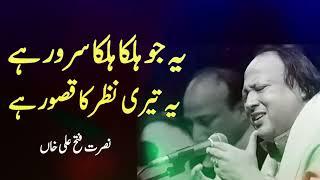

![[HERE?] NewJeans - Hype Boy | Dance Cover [HERE?] NewJeans - Hype Boy | Dance Cover](https://rtube.cc/img/upload/WTFOTjVoLVZiT0I.jpg)
